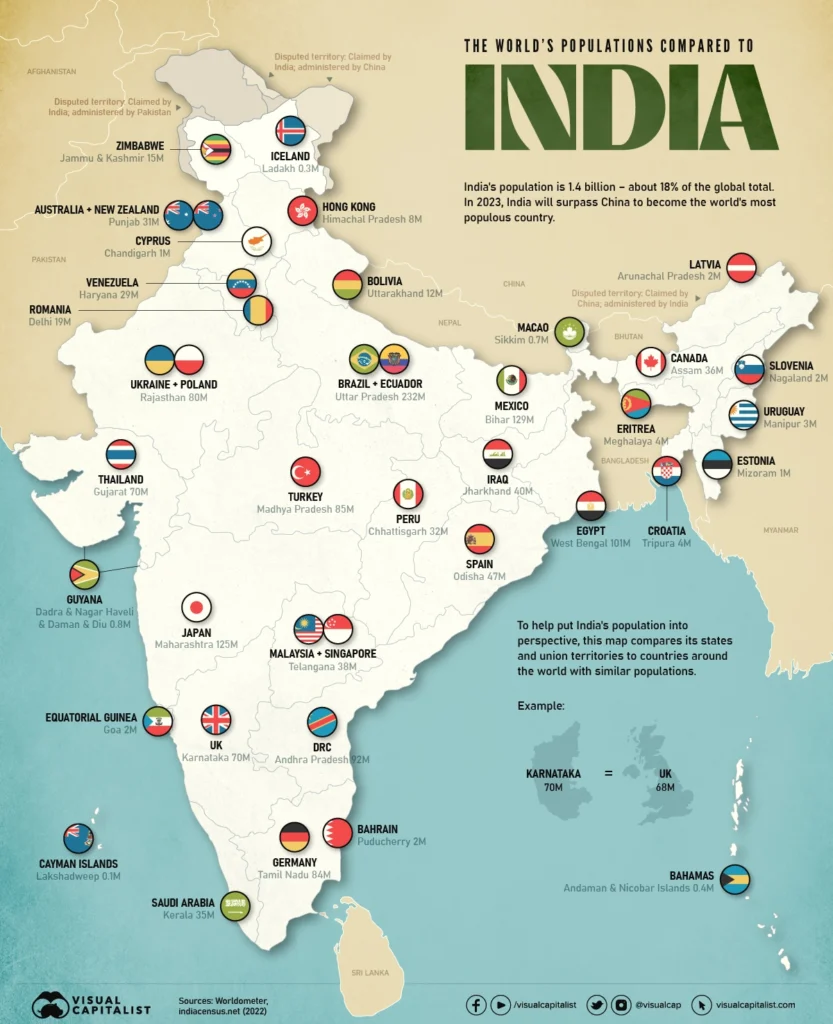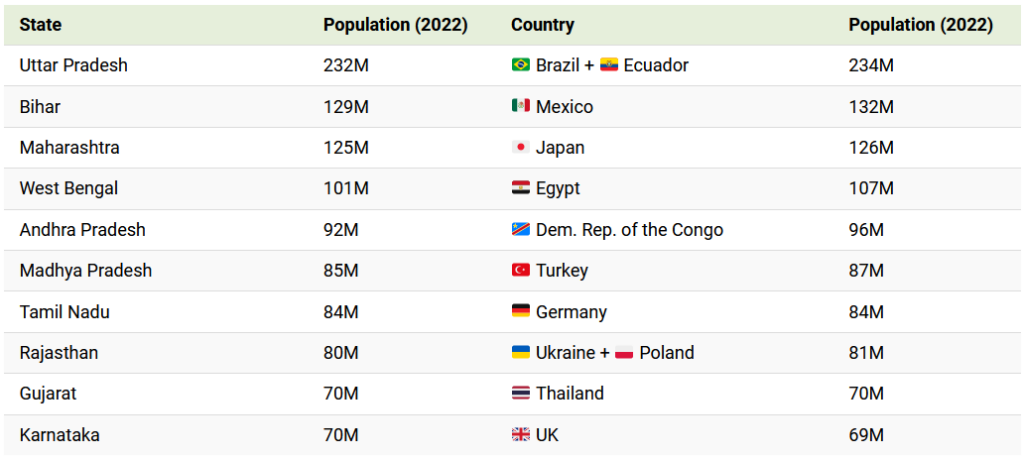In a world with eight billion people, even the numbers of the largest population centers like China and India can start to lose their impact.

The visualization above looks to give people a different frame of reference to think about the country’s massive population figures.
The Population BreakdownSimilar to other big countries, the gap between India’s largest and smallest states is quite wide.
Uttar Pradesh is the most populous country subdivision in the world at 232 million people, while Sikkim, in the northeast of the country, is the least populated state in India (0.7 million).
Here are India’s 28 states and 8 union territories compared to other countries and territories with comparable sizes:

Hypothetically, if India’s states were to all became countries today, they would take up half the spots in a ranking of the world’s top 20 most populous countries.
A number of Indian states match up evenly against some very large countries, including Maharashtra (Japan), West Bengal (Egypt), Andhra Pradesh (DRC) and Tamil Nadu (Germany). Of course, the largest is Uttar Pradesh (Brazil+Chile), which also happens to measure up to neighboring Pakistan.
For people living in countries such as Canada or Australia, it may be humbling to know that these countries are equal to a smallish Indian state.
The Big Get BiggerAccording to United Nations projections, India is on track to become the most populous country in the world in 2023.
The population of India’s growth is fueled by several factors, including declining mortality rates, increased life expectancy, and high birth rates. While India’s population growth has slowed in recent years due to factors such as urbanization and increasing access to contraception, the country’s population is still expected to continue growing at a significant rate for the foreseeable future.
VISUAL CAPITALIST
